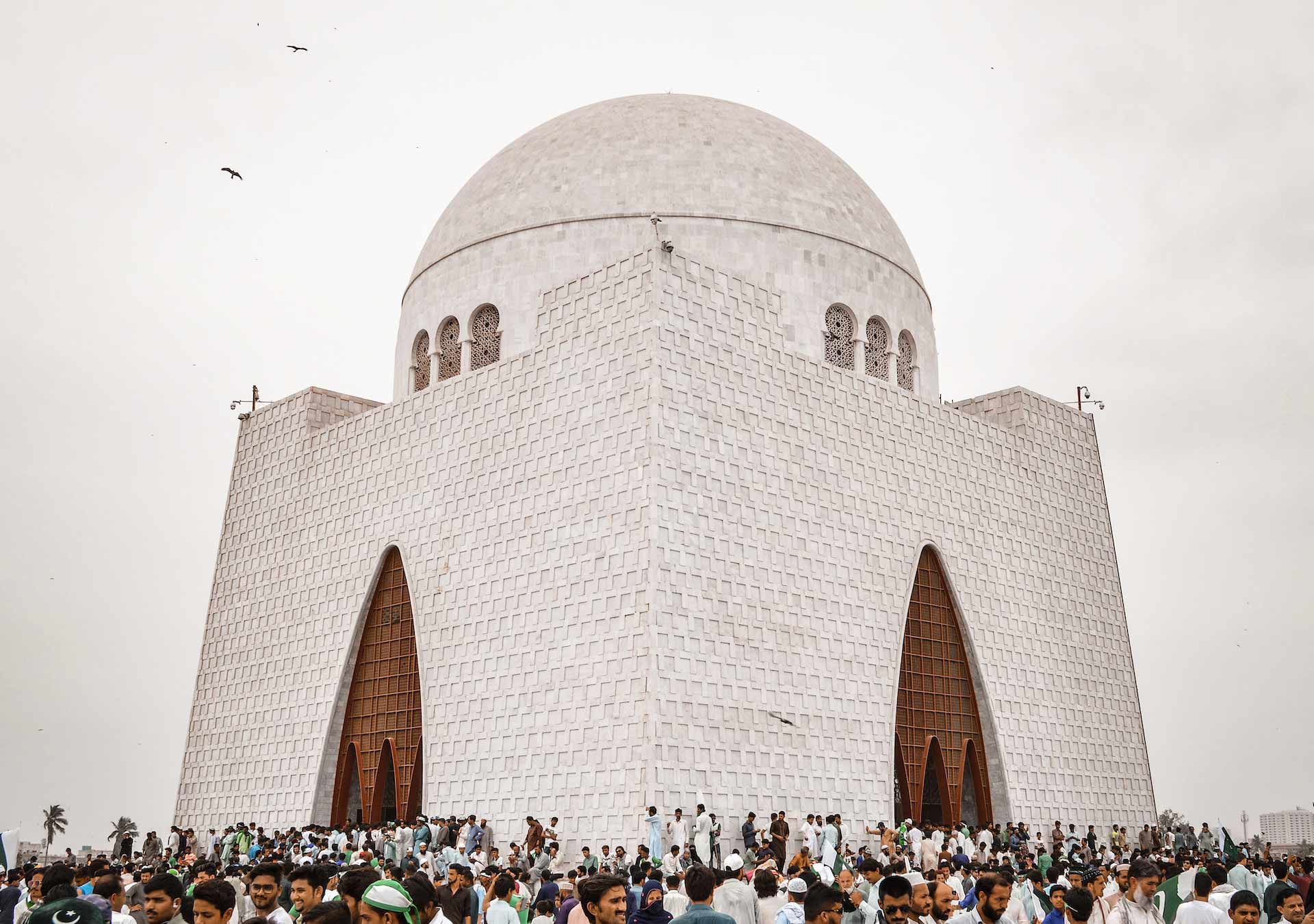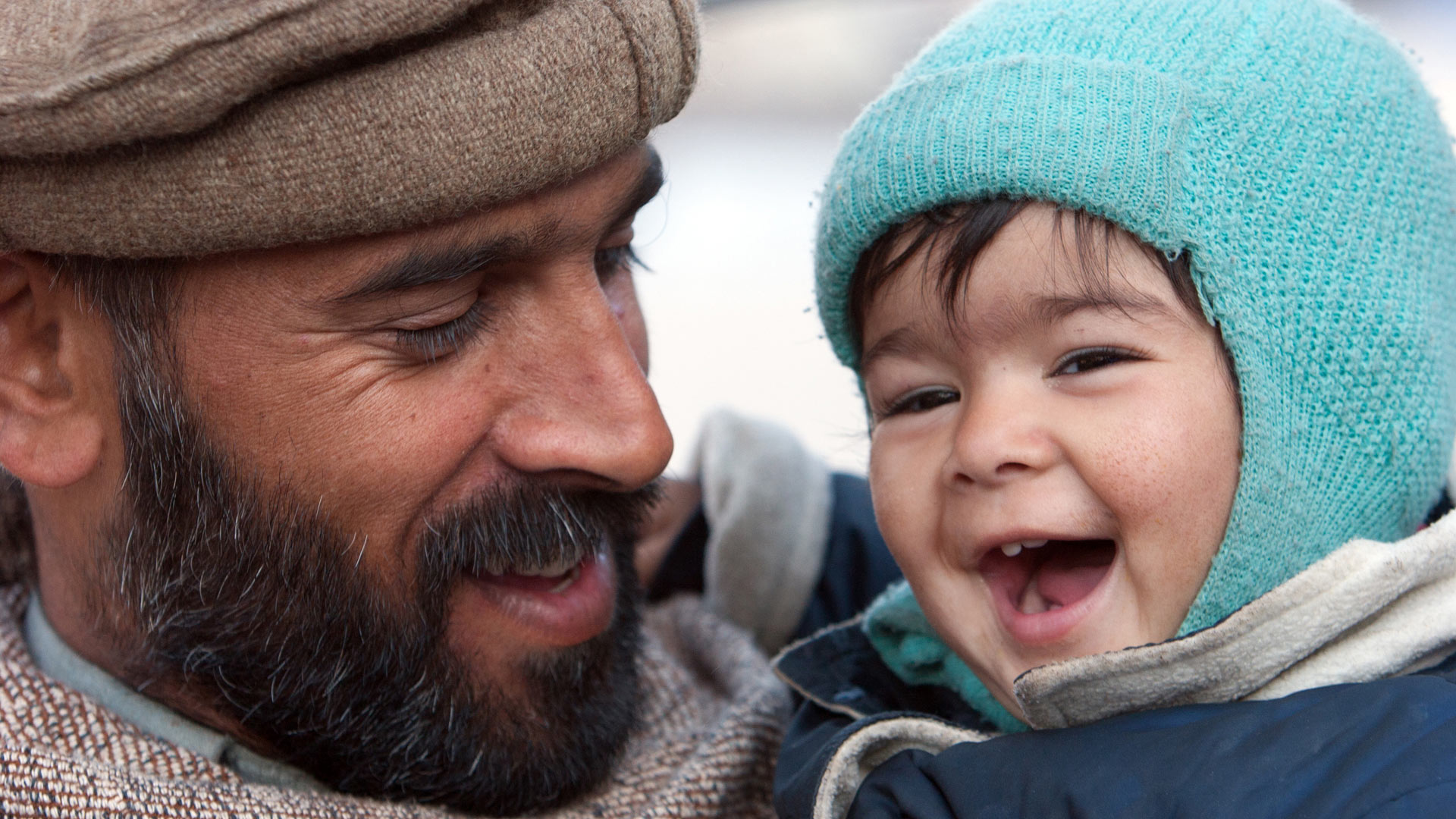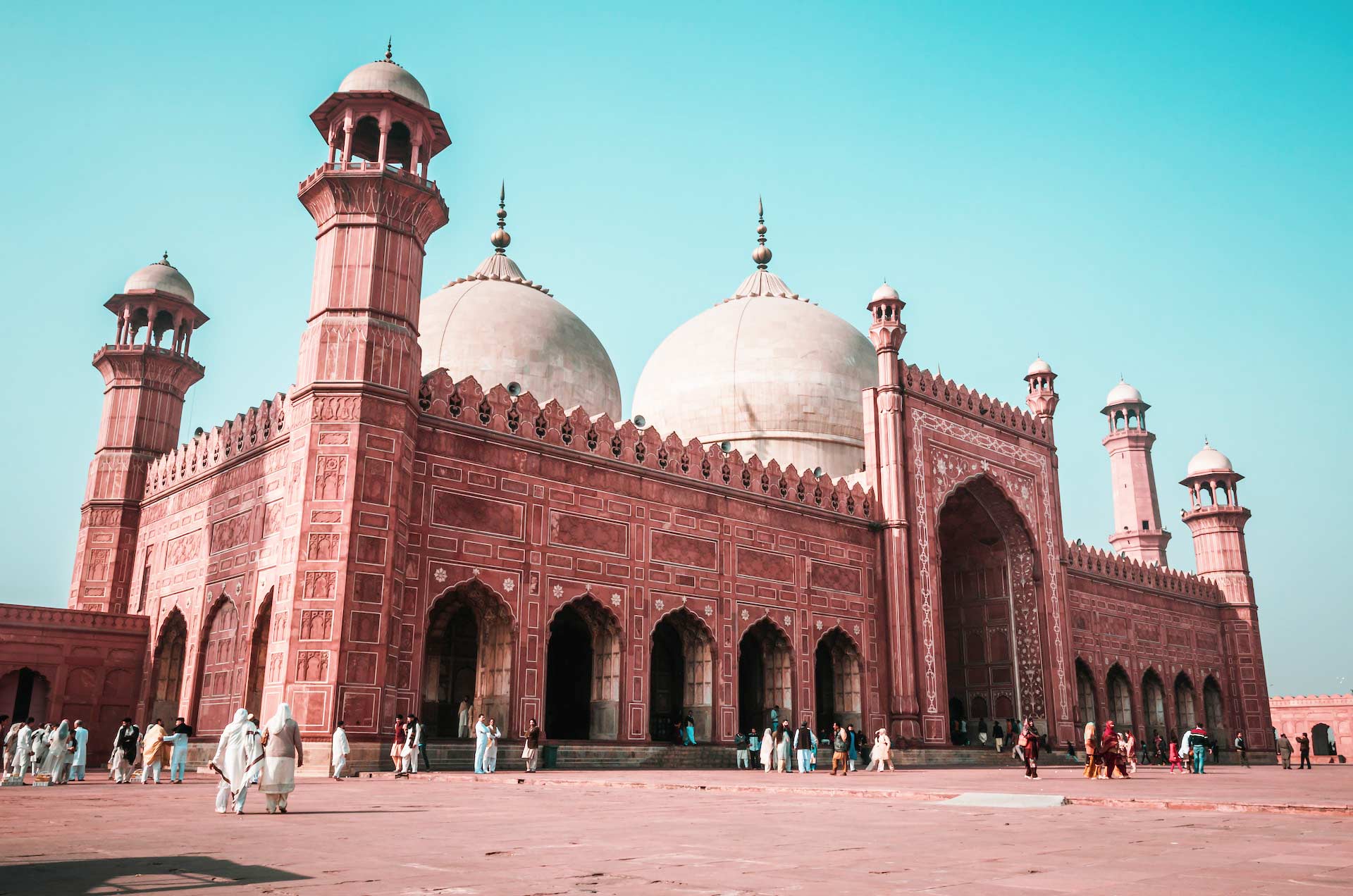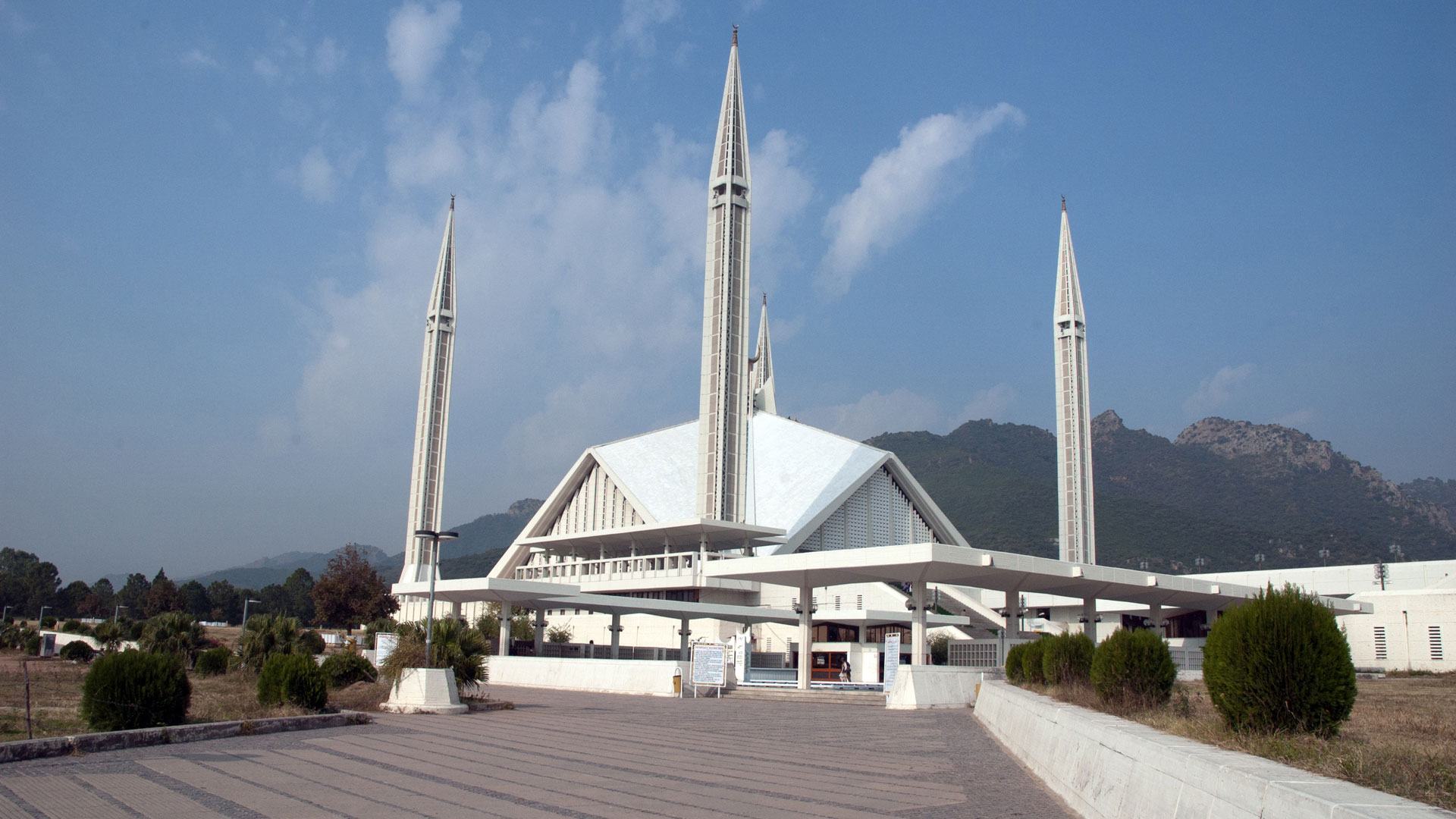World Heritage Tour of Pakistan
Cultural tour of Pakistan
Limited time offer! Save US$ 100 per person off the total tour price when booked 6 months in advance as a party of 2 or more.
Limited time offer! Save CA$ 144 per person off the total tour price when booked 6 months in advance as a party of 2 or more.
Pakistan is home to the most important centres of the Indus Valley Civilization, the ancient Kingdom of Gandhara and some of the most magnificent natural and historical sites of the Moghul Empire. On this incredible 12-day journey we visit all 6 of the UNESCO World Heritage Sites in Pakistan, travel through 5000 years of history, enjoy beautiful landscapes and make friendly contacts with a large number of people. The country is a pluralist society comprising of people speaking over 70 different languages and have distinct culinary tastes with multi-faceted cultural traits. Here, warm hospitality is a long-honored tradition.
| UNESCO World Heritage Sites covered in this tour | |||
|---|---|---|---|
| 1. | Archaeological site Indus Valley at Moenjodaro | 2. | Buddhist Ruins of Takht-i-Bahi and Neighbouring City Remains at Sahr-i-Bahlol |
| 3. | Fort and Shalamar Gardens in Lahore | 4. | Historical Monuments at Makli, Thatta |
| 5. | Rohtas Fort | 6. | Taxila |
| Pakistan also has 25 other sites on what is called the “Tentative List” awaiting final approval from UNESCO | |||
| Tour Information | ||
|---|---|---|
| Duration | : | 12 days |
| Minimum | : | 2 persons |
| Maximum | : | 8 persons |
| Price (From) | : | |
| International air not included | ||
Day 01: Arrive Karachi

Khush Amdeed! Welcome to Karachi Airport, where a warm reception awaits you and you are transferred to your hotel located in the heart of the city. As Pakistan's largest city and the first capital since the country's creation on August 14, 1947, Karachi is home to a diverse population of over 15 million people belonging to various ethnic groups, religions and speaking a multiple number of languages. Situated on the Arabian Sea, the city boasts a variety of architectural wonders and is renowned for its rich taste in culinary offerings.
Overnight: Pearl Continental, Karachi (2 nights)
Day 02: Karachi/Thatta/Karachi (Drive)
We start our World Heritage Tour with the large collection of the Indus Valley artifacts located at the National Museum. The museum also has an excellent collection from the Gandhara period. Afterward we take an excursion to the Historical Monuments at Makli and Thatta*. The archaeological site and the necropolis of Makli testify in an outstanding manner to the civilization of Sind from the 14th to the 18th centuries. The site preserves, in a state of exceptional integrity, an imposing monumental complex. The remains of the city and the necropolis, massed at the edge of the Makli plateau, cover a distance of about 12 kilometers. The four-century-long golden age of Thatta has left many richly decorated monuments, including the world’s largest cemetery at Makli Necropoli. (B, D)
Day 03: Karachi/Sukkur (Flight) /Moenjodaro/Sukkur (Drive)

After a short flight to Sukkur, we proceed to the archaeological site of Moenjodaro*, the most ancient and best-preserved urban site of the Indus Civilization. This 5,000-year-old city is the earliest manifestation of urbanization in South Asia. Its urban planning surpasses that of many other sites of the oriental civilizations that were to follow. Moenjodaro is a massive site comprising of a stupa mound that rises in the western sector and, to the east, the lower city ruins spread out along the banks of the Indus. The acropolis, the ramparts, and the lower town, which is laid out according to strict rules, provide evidence of an early system of town planning. The stupa mound, built on a massive platform of mud brick, is composed of the ruins of several major structures: Great Bath, Great Granary, College Square and Pillared Hall, as well as a number of private homes. The extensive lower city is a complex of private and public houses, wells, shops and commercial buildings. These buildings are laid out along streets intersecting each other at right angles, in a highly orderly form of city planning that also incorporated important systems of sanitation and drainage. We also visit the Moenjodaro Museum, before returning to Sukkur for the night.
Overnight: Hotel One, Sukkur (1 night) (B, D)
Day 04: Sukkur/Bhong/Bahawalpur (Drive)

We start exploring Sukkur, the largest settlement in interior Sind, and continue on a scenic rural Sind and Lower Punjab drive to Bhong. The extraordinary, albeit modern, mosque in Bhong is a recipient of the Aga Khan Award for Islamic Architecture. Built in traditional style with extravagant use of gold leaf, mirror work and onyx, it displays extraordinary Arabic calligraphy. Only traditional materials were used in the mosque interiors. In the words of the jury: Bhong enshrines and epitomises the popular taste in Pakistan with all its vigour, pride, tension and sentiment. Its use, and misuse, of signs and symbols expresses appropriate growing pains of an architecture in transition. Continue to Bahawalpur, a former princely state ruled mainly by the Nawabs. Bahawalpur is famous for its carpets, embroidery and pottery. Being a princely during the British Raj, Bahawalpur was given the choice at the time of the partitioning of India, to opt to either join Pakistan or India. Today it is amongst the 10th largest cities in the country. Balance of the day is free to loiter around this one-time, princely state.
Overnight: Hotel One, Bahawalpur (1 night) (B, D)
Day 05: Bahawalpur/Multan (Drive)
We explore the regal city of Bahawalpur, founded in 1748 by Nawab Bhawal Khan. A 2hour drive and we are in Multan – probably Pakistan’s most colorful Sufi city. We will visit the Old Fort of Multan and be baffled with the architecture of the elaborately decorated shrines of Sheikh Bahad-ud-din Zakriya and that of the great saint Shah Shams Tabriz. Tabriz was a Persian Shafi'ite poet, who is credited as being the spiritual instructor of Mevlana Rumi and is referenced with great reverence in Rumi's poetic collection, Diwan-i Shams-i Tabrīzī. We also visit the tomb of Shah Rukn-i-Alam built around 1320 AD. The interior, although originally plastered, is bare and the sarcophagus of the saint is surrounded by those of 72 of his descendants. The saint is still revered today and pilgrims numbering over 100,000 who descend from all over South Asia every year to pay homage. We culminate the day at the colourful Hussain Agahi Bazaar. Evening, enjoy a Qawali recital made famous across the globe by the maestro, Nusrat Fateh Ali Khan.
Overnight: Ramada Inn, Multan (1 night) (B, D)
Day 06: Multan/Harappa/Lahore (Drive)

A drive through green and rural Punjab gets us to Harappa. The archaeological site of Harappa consists of a series of low archaeological mounds and cemeteries to the south of a dry bed of the Ravi river. These mounds date from the fourth to the second millennium B.C. A modern sign posted network of concrete paths links most of the mounds. There are a number of historic structures scattered across the property including an un-conserved Gupta period temple, a partially conserved mosque and the recently excavated foundations of a Moghul serai. A modern reconstruction of a Bronze Age city wall and gate has been created on the southern edge of mounds. We explore this intriguing site and visit the Harappa Museum before continuing to the majestic city of Lahore. For over a thousand years as the traditional capital of Punjab, Lahore is the cultural center of the subcontinent.
Overnight: Pearl Continental, Lahore (2 nights) (B, D)
Day 07: Lahore
We start our visit with the 11th century, Lahore Fort*. The 21 monuments which survive within its boundaries are a majestic record of Moghul architecture. Explore the fort’s luxurious marbles and inlays of precious materials and mosaics. We will also experience the Diwan-e-Kas, Lal Burj, Khwabgah-e-Jahangiri and the majestic Shish Mahal, one of the most beautiful palaces in the world. Next, we visit the huge and outstanding Badshahi (Royal) Mosque, an unsurpassed work of Moghul architecture. We then explore the Samadhi of Ranjit Singh, the mausoleum of the Sikh ruler Maharaja Ranjit Singh and Guru Arjun Dev, both revered places for the Sikhs; and ofcourse the majestic Shalimar Gardens*.
Afternoon we visit the Lahore Museum and its many galleries displaying artifacts from the Gandhara, Buddhist, Jain, Moghul and Colonial periods. The highlights of the museum are a statue of the fasting Siddhartha (Buddha) and the Zamzamma, Rudyard Kipling’s gun. Next, we head to the town of Shahdara Bagh to visit the Tombs of Jahangir (the 4th. Moghul King) and his Empress, Nur Jehan. This was the beginning of Moghul architecture and his son, Shah Jahan added many more including the Taj Mahal, the Red Forts and several other Moghul monuments. We also explore the famous Wazir Khan's Mosque and the many narrow street bazaars in Old Lahore. Lahore is the food capital of Pakistan and we will have a taste of it at the popular, Lahore Village. (B, D)
Day 08: Lahore/Rohtas/Rawalpindi (Drive)

We take the historical Grand Trunk Road to visit Rohtas Fort*. Following the defeat of the Moghul emperor Humayun in 1541, Sher Shah Suri built a strong fortified complex at Rohtas, a strategic site in the north of what is now in Pakistan. However, the fort was never taken by storm and has survived intact to the present day. The main fortifications consist of the massive walls, which extend for more than 4 Kms. They are lined with bastions and pierced by monumental gateways. It is an exceptional example of early Muslim military architecture in Central and South Asia. After visiting the fort, we drive to Rawalpindi and are transferred to our hotel. Rawalpindi is the twin city to Islamabad. Evening, we are driven to the capital city Islamabad for dinner at the Islamabad Monal Hill View restaurant, known for its Punjabi cuisine combined with breathtaking view.
Overnight: Pearl Continental, Rawalpindi (2 nights) (B, D)
Day 09: Rawalpindi/Taxila/Islamabad/Rawalpindi (Drive)
Today we explore Taxila*. From the ancient Neolithic tumulus of Saraikala to the ramparts of Sirkap (2nd century B.C.) and the city of Sirsukh (1st Century A.D.), Taxila illustrates the different stages in the development of a city on the Indus. Influenced by Persia, Greece and Central Asia, Taxila was an important Buddhist learning centre. The history of Taxila spans over a thousand years, from 500 B.C. to 500 A.D. The Taxila Museum reflects the original culture and tradition of the old Gandhara Civilization.
From here, we continue to Shakarparian (sweet hills) Gardens, from where we get a panoramic view of Islamabad. We visit the Lok Virsa Museum, housing a fascinating array of traditional handicrafts including embroidered costumes, old jewellery and intricate woodcarvings. It is a popular place for those wishing to buy traditional Pakistani crafts. We then drive past various modern streets and buildings gracefully designed in Islamic architecture. The Islamabad portion of the tour culminates at one of the world’s largest mosques, Shah Faisal Mosque. From here we drive to Rawalpindi and visit this much older town including the historical Raja Bazaar. (B, D)
Day 10: Rawalpindi/Takht-i-Bhai/Peshawar (Drive)

Continuing on the Grand Trunk Route, we drive to the Buddhist monastic complex of Takht-i-Bahi* (Throne of Origins), which was founded in the early 1st century. Owing to its location on the crest of a high hill, it escaped successive invasions and is still exceptionally well preserved. We will also visit the nearby ruins of Sahr-i-Bahlol*, a small fortified city dating from the same period, before continuing to the historical city of Peshawar. Peshawar is the gateway to, what was known during the British Raj as, “North West Frontier Province” and is also the city that leads one to the world famous, Khyber Pass. The Pass has seen invasions from time immemorial by invaders like Alexander the Great, Cyrus the Great, Genghis Khan, Babur the Tiger, Chandragupta Maurya, Darius I and countless other would-be conquerors.
Overnight: Pearl Continental, Peshawar (2 nights) (B, D)
Day 11: Peshawar & Khyber Pass
Probably the major highlight of this tour is when we explore Peshawar, recognized as being one of the Oldest Living Cities in Asia. Its history and culture have continued uninterrupted for several centuries, as Peshawar has been a centre of trade between Afghanistan, South Asia, Central Asia and the Middle East. We explore this historical city, visiting the legendary Quissa Khawani (Story Tellers) bazaar. In olden days, this was the place where caravans and military adventurers would halt and professional storytellers recited ballads and tales of travel, war and love to locals and traders. Today the storytellers are gone, but the atmosphere of old stories still lingers. This bazaar offers everything from goldsmiths and silversmiths, to traditional carpets, to pottery, and clothing to artwork in wood, brass or semi-precious stones.

We then visit the incredible Mahabat Khan Mosque followed by a tour of the other highlights of the city. In the afternoon, subject to permit, we visit the incredible Khyber Pass linking Pakistan with Afghanistan or we have an in-depth visit of the 1907 built, Peshawar Museum, known for its rich collection of Gandhara artifacts. Originally called as "Victoria Hall," in memory of Queen Victoria, the two-story building was built in a syncretic architectural style consisting of British, Hindu, Buddhist and Mughal Islamic styles. (B, D)
Day 12: Depart Peshawar
After our enlightening journey through millenary history, we are transferred to the airport for our departure flight. (B)
B=Breakfast, L=Lunch, D=Dinner
Departure Dates & Prices
We accept payments in US$, CA$ as well as in other convertible currencies like EUR, AUD and GBP. Tour prices have been costed in US$. CA$ price shown below is an indicative amount reached at by using the conversion rate at the time of web posting and will be applicable if there is no change in the conversion rate. Should the currency conversion rate change, the US$ pricing will prevail. Bestway Tours & Safaris offers a conversion rate protection. Once full payment has been received and no modification has been made to the tour itinerary, we will honour that rate. For complete payment procedures, please click here
| 2025 | Per Person on Twin Sharing |
Single Room Supplement |
|---|---|---|
| Departure(s) | ||
| Apr 13; Aug 17; Sep 18; Oct 19 | US$ 3350 | US$ 895 |
| 2025 | Per Person on Twin Sharing |
Single Room Supplement |
|---|---|---|
| Departure(s) | ||
| Apr 13; Aug 17; Sep 18; Oct 19 | CA$ 4821 | CA$ 1288 |
|
Limited time offer! Save US$ 100 per person off the total tour price when booked 6 months in advance as a party of 2 or more.
Limited time offer! Save CA$ 144 per person off the total tour price when booked 6 months in advance as a party of 2 or more.
|
Notes
- This tour can be done as a private and customized tour for your preferred departure dates. For details, please contact us.
Inclusions
- 11 Nights' accommodation as mentioned or similar, including hotel taxes
- 21 Meals as mentioned (B=Breakfast, D=Dinner)
- All sightseeing and transfers by private transportation
- Services of local English speaking tour guides
- Entrance fees to museums and sites included in the itinerary
- International airfares
-
Within tour itinerary Karachi/Sukkur (currently at US$ 150 per person)Within tour itinerary Karachi/Sukkur (currently at CA$ 216 per person)
- Insurance/visas
- Tips/gratuities
Participants
This tour operates on a minimum of 2 and a maximum of 8 participants
Customised Itinerary
If you would like to have a tour on dates other than the above ones or with a customised itinerary, please contact us and we will be happy to work out an exclusive program for you.
Contact Info
Email us at bestway@bestway.com or call 1-604-264-7378.
Residents of U.S.A./Canada may call us toll free at 1-800-663-0844.
Inquire About this Trip
Tour Application Form


